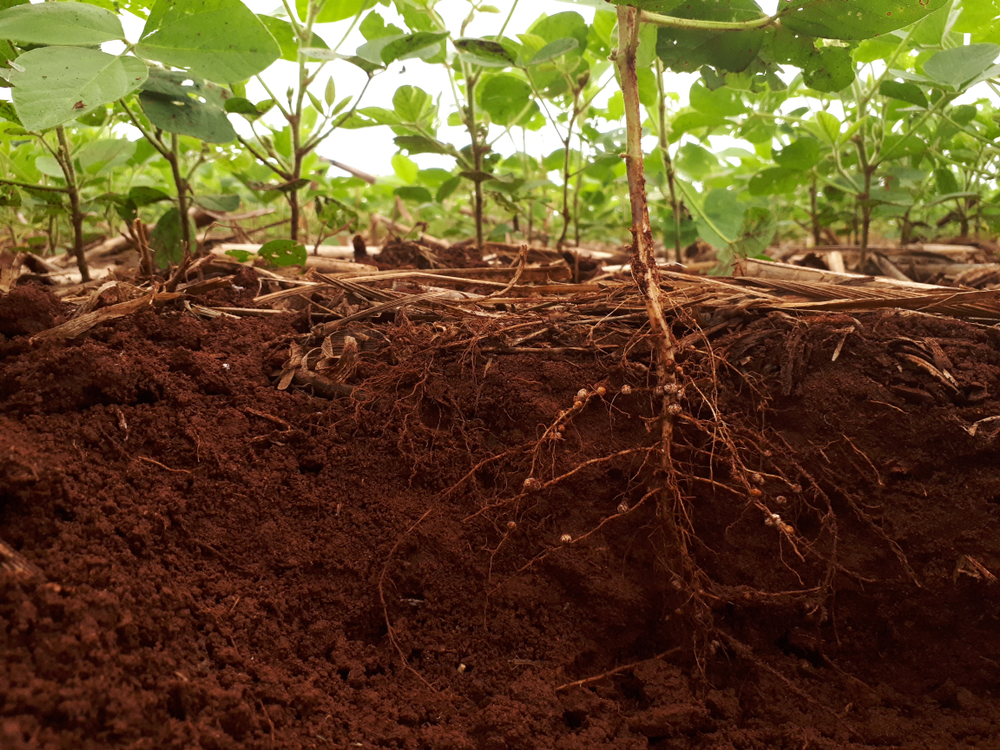I was brought up on a small farm, kind of an idyllic upbringing in some ways, but also quite hard work in others. Therefore, in this post I thought I would go back to my roots and post about something agriculturally related for the first time. Let’s consider agricultural land use and management and how that relates to environmental impact. Agriculture plays a key role in society. It provides us with food and other useful items, but when not completed properly, it can cause significant environmental impacts.
Soil
This is a huge topic, but let’s start with the soil! Soil may not seem like the most exciting of substances but it is essential to land and environmental management. Soil is a key reservoir of carbon. It is estimated to hold around 2,500 gigatons of carbon – that is around three times more than is in air and four times the amount present in living plants and animals! Soil is also important as it holds and provides nutrients for plants and it plays a key role in many nutrient cycles (such as nitrogen, phosphorous, and carbon).
Effective soil management involves maintaining high levels of organic matter and making sure that the soil structure is not negatively affected. Poor soil structure from agricultural practices such as the heavy use of machinery, high density of livestock, and over tilling can lead to soil becoming compacted. This has numerous impacts such as prevention of root growth, reduced flood prevention, and the lack of vertical infiltration of water etc.
Drainage
Land also plays a key part in regulating drainage. Changes to lowland areas as a consequence of intensive agricultural practices has occurred in many areas. Water has been removed from fields and water tables lowered so to eliminate ‘excess’ water. This allows for more intensive farming practices. Ponds have also been removed, which are often high in biodiversity. Such practices has resulted in major impacts on wetland species.
Pesticides
Pesticide use is also a major concern. Pesticides can have numerous direct and indirect impacts. These include the loss of insects and weed plants and seeds that support bird and other animals. Pesticides can also accumulate in food chains, the use of DDT being a well-known example. There are serious concerns as to the effects of neonicotinoid pesticides on bee species.
Nutrients
Nutrients applied to land incorrectly can also impact the environment in various ways. If manures and slurries are over applied they will not all be taken up by plants and can run off into watercourses impacting habitats and potentially drinking water. They can cause deoxygenation of water courses through a process known as nutrient enrichment (eutrophication). Manures and slurries can release to atmosphere odours, ammonia, nitrous oxide and methane which can impact the environment in numerous ways.
Land clearance
We also have to consider what was previously on the land prior to it being used. Clearance of land for agriculture can significantly impact on the environment. Trees for example are often removed by either logging or burning to clear land for agricultural purposes such as cattle, or crop plantations. The removal of trees can have significant environmental impacts such as biodiversity loss. Soil erosion can occur in deforested areas which allows fertile soil to be washed into watercourses, leaving behind a soil that is poor in nutrients and not much good for growing crops or other plants. Trees, like soils, are also good at soaking up water and as such can help reduce flood risk in addition to helping regulate carbon and providing significant recreational and cultural value. To find out more about the importance of forests take a look at this blog post.
Final Note
In this post we have seen that agriculture, although massively beneficial, if not completed properly can have some major environmental impacts including impacts on soil and drainage, excess pesticide use, nutrient enrichment in water courses and land clearance.
John Binns BSc (Hons), MSc, MISEP (formerly IEMA)

With over 19 years’ experience working in environment management, John Binns BSc (Hons) MSc MISEP (formerly IEMA) is an experienced environmental tutor and consultant with knowledge of health and safety management.
